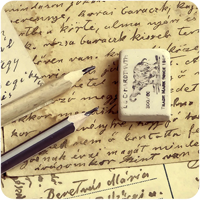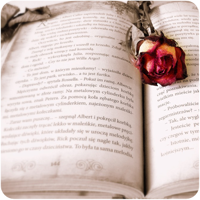Het arrangement 12.2 Love letters - hv12 is gemaakt met Wikiwijs van Kennisnet. Wikiwijs is hét onderwijsplatform waar je leermiddelen zoekt, maakt en deelt.
- Auteur
- Laatst gewijzigd
- 11-05-2025 19:28:22
- Licentie
-
Dit lesmateriaal is gepubliceerd onder de Creative Commons Naamsvermelding-GelijkDelen 4.0 Internationale licentie. Dit houdt in dat je onder de voorwaarde van naamsvermelding en publicatie onder dezelfde licentie vrij bent om:
- het werk te delen - te kopiëren, te verspreiden en door te geven via elk medium of bestandsformaat
- het werk te bewerken - te remixen, te veranderen en afgeleide werken te maken
- voor alle doeleinden, inclusief commerciële doeleinden.
Meer informatie over de CC Naamsvermelding-GelijkDelen 4.0 Internationale licentie.
Aanvullende informatie over dit lesmateriaal
Van dit lesmateriaal is de volgende aanvullende informatie beschikbaar:
- Toelichting
- Deze les valt onder de arrangeerbare leerlijn van de Stercollecties voor Engels voor havo en vwo, leerjaar 1 en 2. Dit is thema 12 'Relationships. Het onderwerp van deze les is: Love letters. Deze les bespreekt liefdesbrieven (van een geheime aanbidder) en verliefd zijn. De grammaticaopdracht behandeld de 'gerund'.
- Leerniveau
- VWO 2; HAVO 1; VWO 1; HAVO 2;
- Leerinhoud en doelen
- Engels;
- Eindgebruiker
- leerling/student
- Moeilijkheidsgraad
- gemiddeld
- Studiebelasting
- 1 uur 40 minuten
- Trefwoorden
- arrangeerbaar, engels, geheime aanbidder, gerund, hv12, liefdesbrieven, love letters, stercollectie, verliefd

 The subject of this double period is love letters.
The subject of this double period is love letters.

 Love letter
Love letter Secret admirer
Secret admirer Study the vocabulary. (10 minutes)
Study the vocabulary. (10 minutes)
 The gerund
The gerund
 Talking about a love letter from a secret admirer
Talking about a love letter from a secret admirer Writing a love letter
Writing a love letter What have you learned in this double period?
What have you learned in this double period?